Video game genres and discourse communities
Under the supervision of Bernard Perron, Dominic Arsenault and Carl Therrien.
In the beginning, we set out to delineate and study a corpus of breakthrough games for five major genres (first-person shooter, adventure game, roleplaying game, platform game, and strategy game). We were confronted to the disparity of canons for each genre. Who were we to decide which games were worthy of scholarly attention, for instance by excluding the “best games” listings produced by the fan communities on Youtube?
This research project addresses epistemological and methodological issues about the production and dissemination of knowledge in various communities. We are studying more specifically four broad “discourse communities”: gamers, industry workers, game critics and scholars. Our goal is to reflect on discursive and interpretive strategies for each of these groups. We are studying a variety of “discursive genres” (top list, editorial, essay, audiovisual presentation, etc.) in order to highlight how these constructions structure (more or less consciously) the way in which members of a community share their conception of a video game genre, and determine relevant games. We are delineating the modes of production and diffusion of discursive practices, and argue that these modes determine in part the imaginary conception of video game genres.
In short, this project seeks to propose an open-minded conception of game genres by acknowledging and analysing the points of view of many discourse communities, in order to better understand how certain conceptions of game genres crystalize over time.
SSHRC grant: “Video Game History as a Challenge to Video Game Theory: A Study of the Formal Aspects and Reception of Video Game Genres” (2013-2017)
Research Assistants
- Pierre-Marc Côté (2013-2015)
- Simon Dor (2013-2018)
- Mikaël Julien (2013-2016)
- Maxwell Landry-Martineau(2013-2015)
- Hugo Montembeault (2013-2018)
- Andréane Morin-Simard (2013-2018)
- Pascale Thériault (2015-2018)
Livres et revues
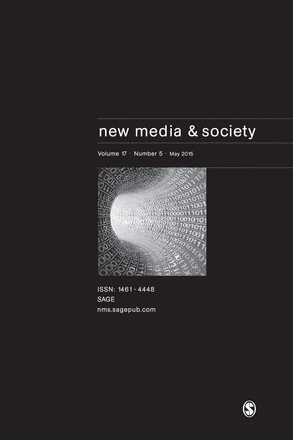
Therrien, Carl, et Martin Picard. 2015. « Enter the bit wars. A study of video game marketing and platform crafting in the wake of the TurboGrafx-16 launch ». New Media & Society, vol. 18, n° 10 (29 avril), p. 2323-2339. [En ligne]
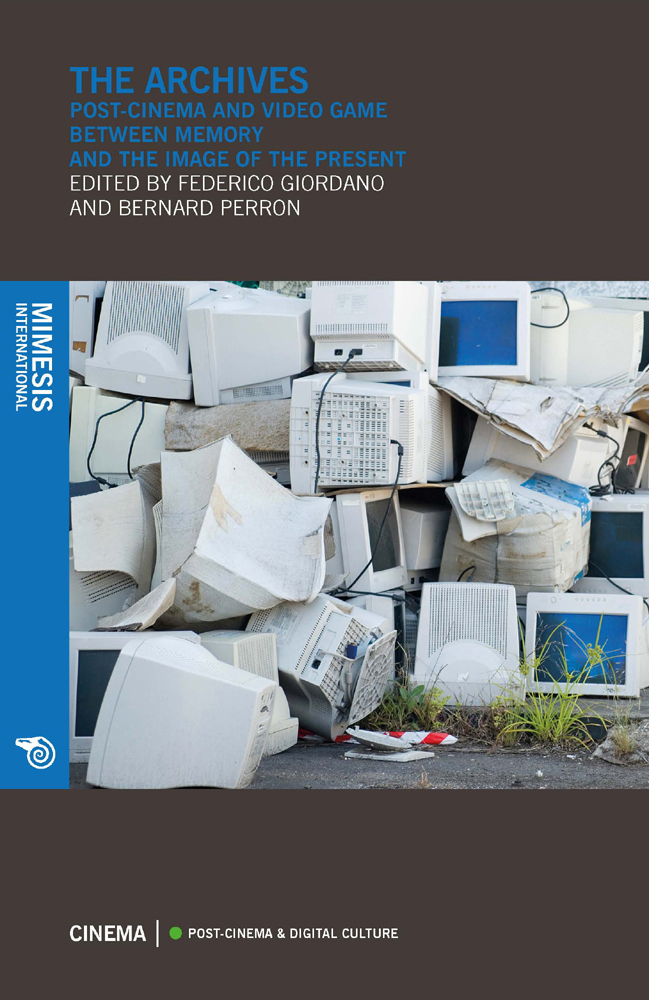
Perron, Bernard, et Simon Dor. 2014. « Addressing the Preservation of Gameplaying: Archiving Actional Modalities (Execution, Resolution, and Strategy) ». Dans Bernard Perron et Federico Giordano (dir.), The Archives: Post-Cinema and Video Game Between Memory and the Image of the Present, p. 177-200. Milan : Mimesis International.
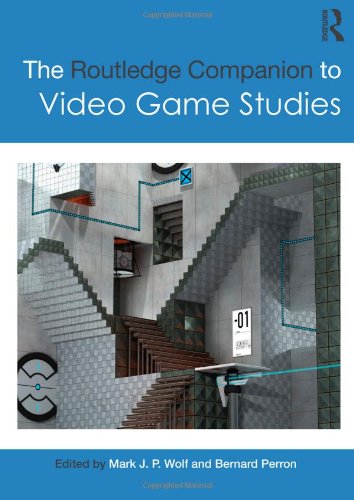
Arsenault, Dominic. 2014. « Action ». Dans Bernard Perron et Mark J.P. Wolf (dir.), The Routledge Companion to Video Game Studies, p. 223-231. New York et Londres : Routledge.
This essay describes two different phenomena: action games, understood as a genre of games in which the player’s sensori-motor skills prevail over his cognitive activity, and a general theory of action-taking in context of the game-playing practice. Through a short history of the main genres and sub-genres traditionally identified with “Action games”, and the conclusion that such a categorization pertains to a mode of action rather than a given genre, the properties of action games are identified as involving a standardized repertoire of actions, emphasis on sensori-motor skills, and short-term action sequences.
Chapitres de livre et articles

Deslongchamps-Gagnon, Maxime, et Hugo Montembeault. À paraître en 2019. « The Walking Simulator’s Generic Experiences ». Press Start.
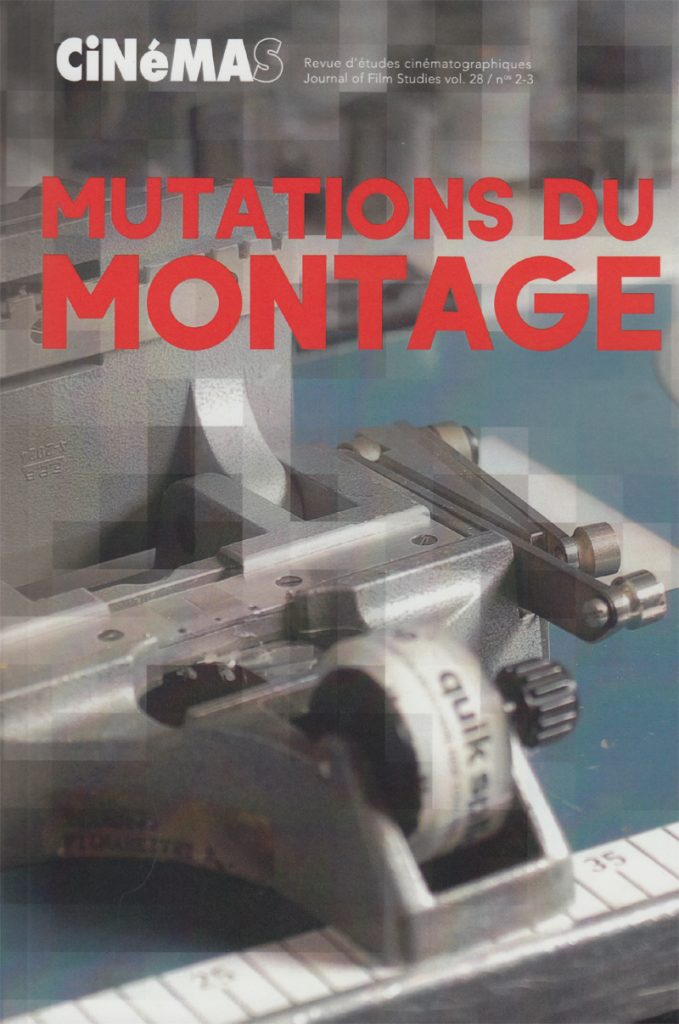
Montembeault, Hugo, Maxime Deslongchamps-Gagnon et Bernard Perron. 2018. « Le jeu vidéo et la notion de montage : se “couper” du cinémato-centrisme ». Dans Santiago Hidalgo et Bernard Perron (dir.), Cinémas (Montréal), Mutations du montage. Esthétiques, technologies, pratiques et discours, vol. 28, n° 2-3, p. 133-154.
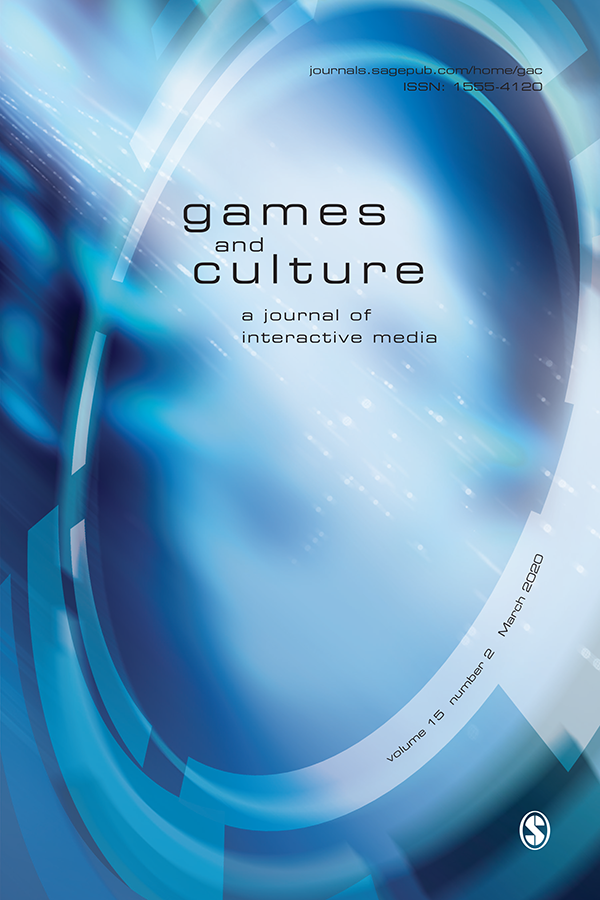
Therrien, Carl, Isabelle Lefebvre et Jean-Charles Ray. 2019. « Toward a Visualization of Video Game Cultural History: Grasping the French Touch ». Games and Culture: A Journal of Interactive Media. [En ligne seulement]
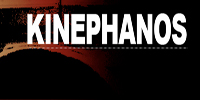
Perron, Bernard, Hugo Montembeault, Andréane Morin-Simard, Jean-Charles Ray et Pascale Thériault. 2019. « Introduction : Splendeur(s) et misère(s) des genres vidéoludiques ». Kinephanos, Numéro Spécial (mai), p.1-8. [En ligne]
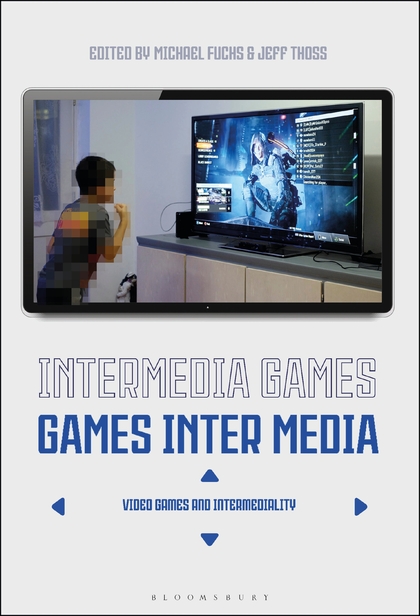
Perron, Bernard, Hugo Montembeault, Andréane Morin-Simard et Carl Therrien. 2019. « The Discourse Community’s Cut: Video Games and the Notion of Montage ». Dans Jeff Thoss et Michael Fuchs (dir.), Intermedia Games—Games Inter Media, p. 37-68. New York : Boolmsbury.
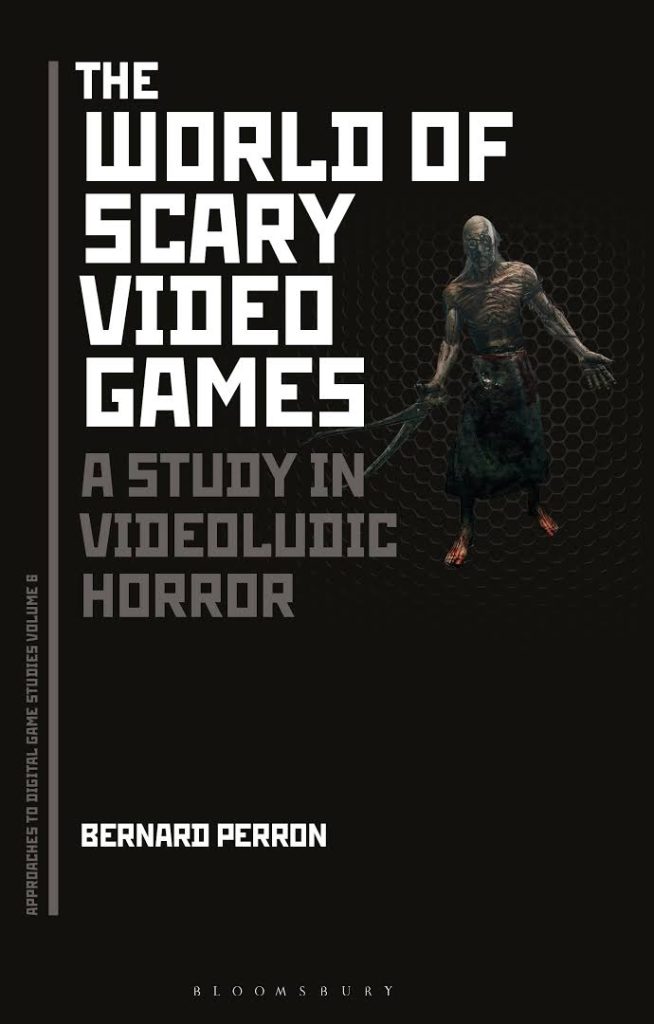
Perron, Bernard. 2018. « “You have once again entered the world of survival horror. Good luck!” ». The World of Scary Video Games: Study in Videoludic Horror, p. 31-65. New York : Bloomsbury.
Autres publications pertinentes
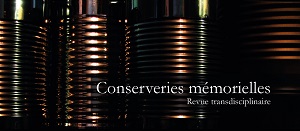
Montembeault, Hugo, et Simon Dor. 2018. « À quoi pensent les archives de la jouabilité? Une approche historiographique de l’expérience vidéoludique ». Conserveries mémorielles, no 23. [En ligne]

Dor, Simon. 2018. « Strategy in Games or Strategy Games: Dictionary and Encyclopaedic Definitions for Game Studies ». Game Studies, vol. 18, no 1. [En ligne]

Perron, Bernard. 2014. « Conventions ». Dans Bernard Perron et Mark J.P. Wolf (dir.), The Routledge Companion to Video Game Studies, p. 74-82. New York : Routledge.

Arsenault, Dominic. 2011. « Des typologies mécaniques à l’expérience esthétique. Fonctions et mutations du genre dans le jeu vidéo ». Thèse de doctorat (non-publiée), Bernard Perron (dir.), Université de Montréal. [En ligne]
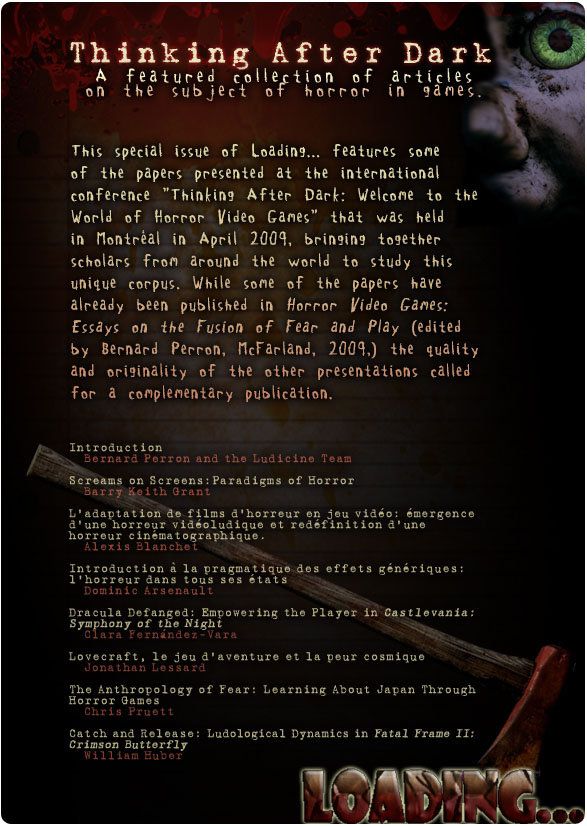
Arsenault, Dominic. 2010. « Introduction à la pragmatique des effets génériques : l’horreur dans tous ses états ». Loading…Journal of the Canadian Game Studies Association, vol. 4, no 6. [En ligne]
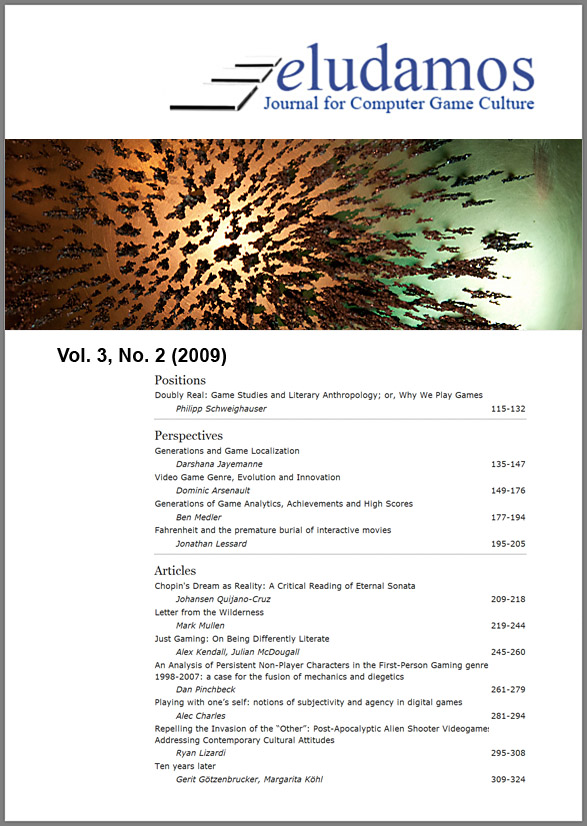

Deslongchamps-Gagnon, Maxime, et Hugo Montembeault. 2018. « Cartographier les effets génériques du walking simulator au-delà du genre : Les cas de The Long Dark et de Kona ». Actes du colloque « Journée d’études LUDOV 2.0 » (Montréal, 13 juin 2018), Université de Montréal.

Deslongchamps-Gagnon, Maxime, et Hugo Montembeault. 2018. « Profil Ludique et LUDOV : Portrait d’une synergie ». Actes du colloque « Symposium des laboratoires universitaires de recherche francophone en études du jeu et de la ludification » (Montréal, 14-16 mai 2018), Université du Québec à Montréal; Université de Montréal; École des arts numériques, de l’animation et du design; Université du Québec en Abitibi-Témiscamingue.

Montembeault, Hugo. 2017. « Repenser l’histoire “condamnée” du FPS ». Splendeur(s) et Misère(s) des Genres (vidéo)ludiques. Actes du colloque « Symposium Annuel Histoire du Jeu 2017 » (Montréal, 28-30 juin 2017), Bibliothèque et Archives nationales du Québec.

Morin-Simard, Andréane, et Hugo Montembeault. 2016. « The Discourse Community’s Cut: Video Games and the Notion of Montage ». Energizing Communities / L’énergie des communautés. Actes du colloque « Association Canadienne d’études cinématographiques / Film Studies Association of Canada (FSAC 2016) – Congress of the Humanities and Social Sciences » (Calgary, 31 Mai – 2 juin 2016), Université de Calgary.

Therrien, Carl, et Hugo Montembeault. 2015. « The Authority of Discourse Communities. Disseminating Techno-Industrial Glorification from Marketers to Academics ». Diversity of Play : Games – Cultures – Identities. Actes du colloque « Digital Games Research Association (DIGRA 2015) » (Lüneburg, 14-17 mai 2015), Leuphana University.

Morin-Simard, Andréane, Hugo Montembeault, Bernard Perron et Guillaume Roux-Girard. 2015. « Les genres vidéoludiques au cœur de l’imaginaire des communautés discursives ». Les Imaginaires de la Communauté. Actes du colloque « Colloque international FIGURA RADICAL » (Montréal, 5 mars 2015), Université du Québec à Montréal.

Perron, Bernard, Dominic Arsenault, Hugo Montembeault, Andréane Morin-Simard et Guillaume Roux-Girard. 2014. « Video Game History as a Challenge to Video Game Theory: A Study of the Formal Aspects and Reception of Video Game Genres ». Borders without Boundaries. Actes du colloque « Association Canadienne des études vidéoludiques / Canadien Game Studies Association (CGSA 2014) – Congress of the Humanities and Social Sciences » (St. Catharines, 29 Mai 2014), Brock University.

Montembeault, Hugo, et Carl Therrien. 2014. « Négocier le First-Person Shooter : Exemplification méthodologique ». Atelier sur les Jeux Vidéo. Actes du colloque « Centre de recherche Interdisciplinaire sur les Technologies Émergentes de l’Université de Montréal (CITÉ 2014) » (Montréal, 21 mars 2014), Université de Montréal.
